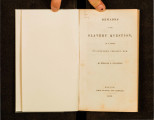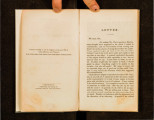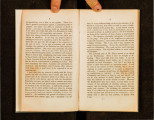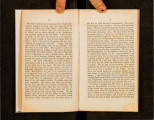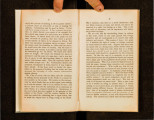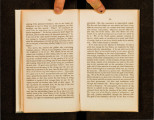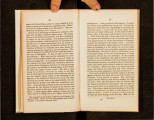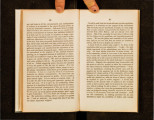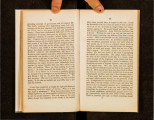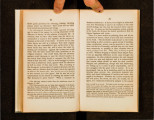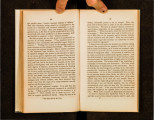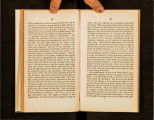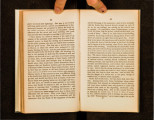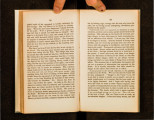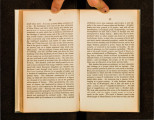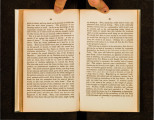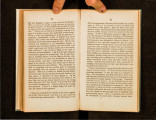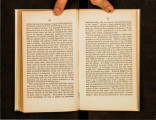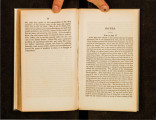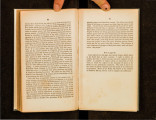| OCR Text |
Show 52 phero by storms and lightnings. But man is not trusted with these awful powers ; and let not philanthropy be disheartened, because not permitted to reform the world by the sudden processes of violence and bloodshed. Moral influences are the surest and most enduring, and good men part with their strength in resortiog to other means. I have known too much of slavery, of the spirit of its victims, of the restraints under which they live, and of the master's power, to dread the stirring up of insurrections. On this point, persons, who have not visited slave countries fall into great e rrors. Not long ago, a speech was made in Boston in which the slaves were compared to wild beasts, thi,rsting for blood ; and the good people were told, that the master locks his doors at night, not knowing, but that in the morning he shall find the throats of wife and children cut from ear to ear ; and there were found among us some, who, in the simplicity of their hearts, believed the tale. One would have thought, that, in hearing the fearful story, they would have asked themselves, how it happens, that our Southern brethren give five hundred or a thousand dollars for one of these beasts of prey ; how it is, that they are anxious to fill their houses and plantations, and surround their wives and children with assassins. Human nature, if this account be true, is a different thing at the South from what it is at the North. Here we should go mad, and should lose life as well as reason, if the murderous blade were glaring before our eyes night and day ; and still more, we should be most grateful to our neighbours who should be anxious to free us from the curse, inste~d of rejecting their "meddling interference" with threats and execrations. But among the hearers of the speech referred to, there seemed not a few, to whom these difficulties did not recur. They even forgot to inquire, how the fearful account was to be reconciled with the assurances from the South of the happiness of the slave 53 a~d the blessings of the institution ; and, in their sympathy w1th the South, they frown ed fiercely enough on such of us, as, by our writings, are stirring up the colored race to ~urder. To tranquillize these compassionate people, I Will tell them, that the picture, which terrified them, was a wor~ of fancy. There is no such terror in slaveholcling countnes. In my long residences among slaves, I have used fewer precautions at night than in this good city . I have slept in one place with open doors, and in another have given to a slave the key to lock the house at the hour of retiring and to reopen It m the morning, when I have been the sole tenant of the dwelling. Undoubtedly the slaveholder wears arms~ just as we bolt our doors and appoint patrols of watchmen m the streets; but in both cases, these and other means ~f defence bring such security, that sleep is undisturbed by fear. The slaves, broken from birth to submission, brought up m Ignorance, confined to the plantation, having no means of external concert, wanting mutual confidence because wanting principle, and separated by the distinctio~ of house servants and field laborers, cower before their instructed arme~, united, organized masters, and feel resistance t~ be vam. Add to this the strong attachment, by which some on almost every estate are bound to the ir owners, stronger than what they bear to their own race ; and we shall see, that the danger of a servile war is not great enough to emb1tter hfe, or deserve much sympathy. Rome had servile wars ; but her slaves had been freem~ n . Among them were fierce barbarians, whose native Wildernesses had .infused an indomitable love of liberty ; and there w~re ClVtllzed men, who groaned in spirit and gn~shed the1r teeth at the degrading, intolerable yoke, wh1ch wa~ crushing them. But in this country there are no mater.mls for servile w~r., at least in times of peace. ~n wa~, mdeed, whether ClVll or foreign, an army rnarchmg Wlfh "Emancipation, on its banner micrht stir up the 5 " b |




